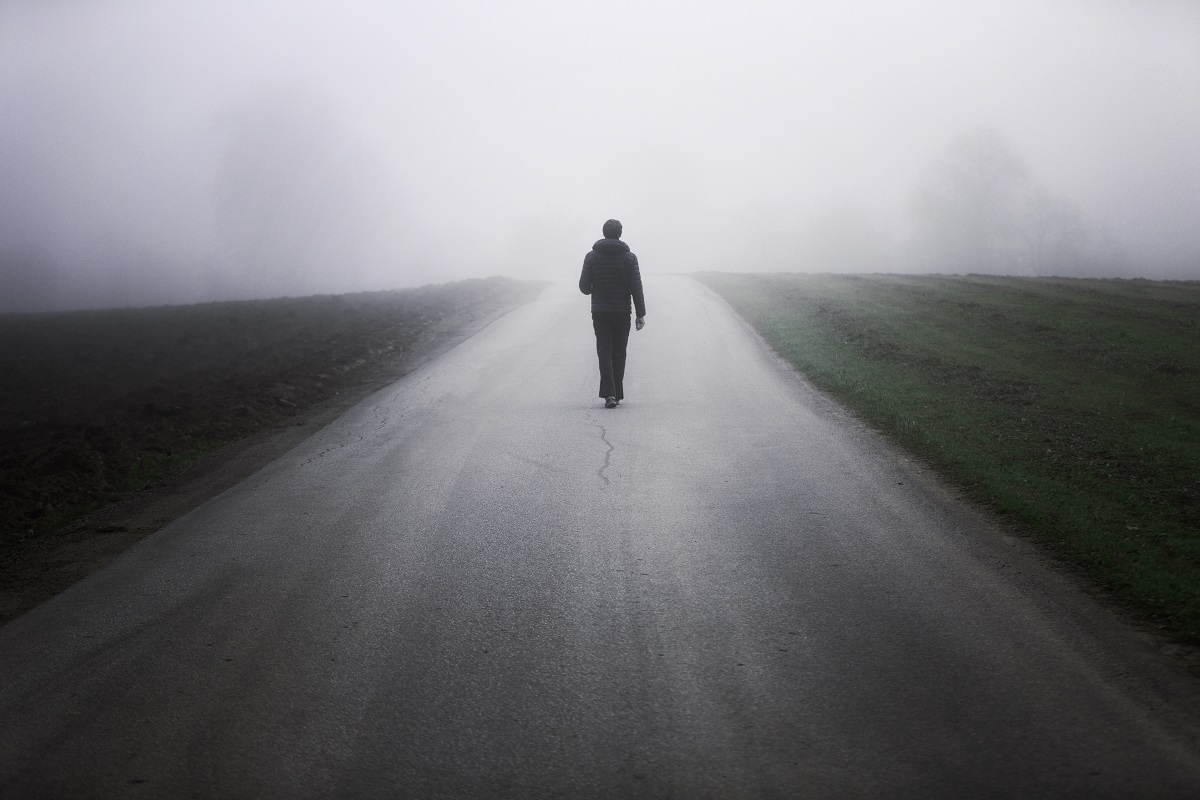
05 Mar Link Between Heroin Abuse and Anxiety
Table of Content
Anxiety and drug addiction are closely tied and often exist concurrently. If you or a loved one have struggled with opioid dependence, be it through prescription painkillers or heroin use, you may be at risk for developing an anxiety disorder than could hinder your recovery. Read on to better understand the effect heroin has on the brain and the link between heroin abuse and anxiety.
Opioid Addiction
Opioid drug abuse—defined as using a prescription opioid for purposes other than prescribed or using it longer or in greater doses than recommended by a doctor—has been linked directly to higher rates of psychological disorders such as depression, anxiety, and bipolar disorders. Unfortunately, opioids are highly addictive, which has lead to the current opioid crisis in the US today. Suffering from anxiety increases the risk of developing an opioid addiction, and at the same time suffering from an opioid addiction increases the risk of developing an anxiety disorder.
In Relation to the U.S.
Opioid abuse is an increasingly fatal problem in the United States that has been making headlines for the past decade. It is estimated that 2.4 million people in the country abuse some form of prescription painkillers. Lack of health insurance or increased regulations of the prescription may cause users to lose access to the source of their addiction, thus adding to the almost half a million individuals who suffer from heroin abuse.
Danger of Prescription Opioids
One study conducted by St. Louis University discovered that simply using prescription opioids can put a patient at higher risk for anxiety or depression, even when they are taken as prescribed.
- Researchers found that out of over 100,000 patients prescribed opioids, 10,000 people developed depression after continued use of the medication for over a month.
- They were given prescription opioids to treat common ailments like back pain, headaches, and arthritis. The patients had no documented history of depression prior to treatment.
- Researchers have concluded that 48% of people dependent on heroin will experience signs and symptoms of depression, and an even larger percentage will experience a general mental health issue like anxiety.
- Patients who fall under this category should seek out a dual diagnosis treatment tailored to both conditions.
From Painkillers to Heroin
Once a patient’s opioid prescription expires, those who have developed a dependence on the drug usually turn to using heroin. Heroin is made more available and less expensive than its prescription counterpart. Approximately 25% of occasional users of the drug become addicted. Use of the incredibly strong opiate in the United States has nearly doubled in the last ten years. The addiction itself comes with its own host of negative emotional effects.
Apart from the feelings experienced during withdrawal, active users may have feelings of:
- Hopelessness
- Despair
- Guilt
- Instability
Heroin and the Brain
The drug heroin is a manmade opioid created from morphine, a naturally occurring substance commonly found in poppy seeds. However, it is known for its highly addictive properties and risk factors. Its substance abuse liability stems from its fast-acting, euphoric effects. Heroin use is linked to a variety of mental health disorders as well as an increased likelihood of contracting viral diseases due to its most common method of use, intravenous injection.
Heroin does more than just spark addiction and create temporary symptoms of depression or anxiety. The opiate actually changes the brain’s cognitive behavioral composition, specifically in the reward and pleasure system as well as the regulation of hormone levels.
Chemical Change Within the Brain
Heroin is converted into the chemical morphine upon entering the brain. Upon infiltration of the blood system:
- Heroine interacts with the mechanisms of the human body that handle pain perception, be it physical or emotional.
- Once the opiate penetrates the brain, it binds to opioid receptors within it.</li style=”padding-bottom:16px;”>
- The morphine then flows into the brain stem and eventually throughout the body.
Why Heroin is Addictive
Endogenous opioids are produced naturally in the body. They work alongside the chemical adrenaline to cause analgesia, or pain relief, for areas of the body that are subjected to trauma. Morphine imitates the actions of these naturally occurring opioids and inhibits gamma-aminobutyric acid (GABA).
- GABA
GABA is a neurotransmitter that decreases the presence of dopamine in the brain. As GABA levels are reduced, dopamine presence increases. The sudden release of dopamine creates a sense of euphoria and pleasure. This is why heroin may be used to self-medicate such mental illnesses as depression, anxiety, and bipolar disorder.
- Reward Center
Dopamine is commonly associated with the brain’s reward system. The chemical neurotransmitter is responsible for the highly addictive properties of heroin use and the substance abuse that often follows.
- High Tolerance
Heroin abusers may develop a tolerance to the effects of the drug very quickly. As the addiction progresses, a higher dose of the opiate is required to achieve the same high. This relationship contributes to heroin’s deadly reputation; the rapid escalation of tolerance increases the risk of lethal overdose.
Pain Perception
Heroin causes an individual to experience the physical symptoms. The pain perception mechanisms of the opiate cannot distinguish between physical and emotional discomfort, so quitting the drug for an extended period of time can cause the user to experience excruciating physical pain or post-traumatic stress disorder. As well, a person may begin to experience physical pain in reaction to negative emotional situations in one’s daily life, pushing him or her back to heroin to provide relief and continue the cycle of substance abuse.
How Heroin Changes the Brain
Continued heroin use deteriorates the white matter of the brain over time. This area influences an individual’s ability to cope with stressful stimuli, regulate emotions and behavior, and make decisions. Physical changes to this region of the brain may cause a person suffering from heroin addiction to become vulnerable to developing a mental health disorder. Substance abuse disorder contributes to the brain’s structural and functional abnormalities.
Relationship Between Anxiety and Heroin
On top of developing an opioid addiction, heroin users may also bear the weight of an additional burden; anxiety. When neglected, this mental illness and its accompanying mood disorders can make the road to recovery much longer.
The link between heroin abuse and anxiety disorders is rather complicated.
- Anxiety and its related disorders may be a consequence of addiction due to the effects of active usage or abstinence during withdrawal.
- Anxiety may be related to the effects of the using environment and the deterioration of an individual’s personal life.
- Underlying anxiety may not be a symptom of heroin use but in fact result in the actual dependence.
Coping with Anxiety
Coping with the symptoms of an anxiety disorder can be overwhelming, especially when the person is struggling through an opioid drug addiction. The nature of anxiety breeds uncertainty in a person’s own actions and fears. Many individuals are fully aware that their triggers are not completely rational, but they cannot halt the progress of their anxiety in the presence of panic attacks, acute stress, phobic thoughts, and compulsive behaviors.
Anxiety can impede a person’s ability to lead a healthy, balanced, normal life. More often than not, it can appear as a result of trying to operate without the numbing effect of an opiate drug. While these symptoms may abate over time, they could also be a signal of an ongoing issue that requires extensive treatment.
Self-Medication
Many individuals battling anxiety self-medicate with illicit substances as a way to get immediate relief from the disorder’s crippling symptoms. Some people drink alcohol or smoke marijuana to relieve the pain or associated stress. Others use a more pharmaceutical approach, turning to painkillers and benzodiazepines for their calming effect. The popularity of painkillers has grown tremendously over the past decade.
Once the federal government caught wind of the prevalence of prescription drug abuse, stronger regulations were put in place that limited their prescription. Those who had already developed a dependence to the calming effect of certain painkillers were left with little alternatives to feed their addiction. From here, we can identify the link between heroin abuse and anxiety.
Co-occurring Disorders
Mental health disorders are commonly found in people who struggle with addiction. Heroin addiction is often diagnosed as a co-occurring affliction with mood and anxiety disorders. Many patients find reprieve from the grips of their mental health problems in the use of hard drugs that help to sedate or numb an individual’s emotions, such as the opiate heroin.
Some disorders that are commonly linked to heroin addiction are:
- Panic disorder
- Post-traumatic stress disorder or PTSD
- Obsessive-compulsive disorder
- General anxiety disorders
Substance abuse and anxiety are related bi-directionally. In the case of heroin, the opiate is used to mask related symptoms and has a tendency to spark agitation in an individual attempting to quit using the drug.
Similar symptoms of anxiety disorders can be experienced during heroin detox:
- Panic
- Anger
- Depression
- Agitation
- Paranoia
- Nervousness
Withdrawal Symptoms
The nature of the relationship between heroin and anxiety is dangerously cyclical. Anxiety related symptoms of heroin withdrawal often increase the chemical cravings for heroin. These symptoms can appear in individuals who never lived with an anxiety disorder prior to using heroin.
You may have to overcome the intense withdrawal symptoms of opioid use before shifting your attention to treating the root cause of the abuse and the accompanying anxiety disorder. If you experience any of the following physical withdrawal symptoms of heroin, seek immediate medical attention:
- Nausea
- Vomiting
- Stomach pain
- Sweating
- Trouble sleeping
- Involuntary movements
- Nervousness
- Intense cravings
Once you have been medically treated for these withdrawal symptoms, you will be able to begin developing strategies to avoid addiction in the future and handle your anxiety disorder in a structured, successful way.
Treating Heroin Addiction and Anxiety
Since medical professionals now recognize heroin addiction and anxiety as co-occurring disorders, it is important that substance abuse treatment programs accomodate a dual diagnosis. By addressing the link between heroin abuse and anxiety, behavioral therapy centers can help an individual through the heroin withdrawal process without neglecting any remaining instability that may lurk beneath the surface of the psyche.
Opioids are less effective in individuals who suffer from depression or anxiety, two mental health conditions that are already associated with imbalances in similar areas of the brain. This relationship may prove deadly. Someone addicted to heroin may choose to increase his or her usage to lethal doses to achieve the desired calm, numbness, or euphoria.
In-Person Therapy
Professional therapy is crucial in fighting heroin addiction. If you or a loved one suffers from heroin addiction, make sure you put your trust in a substance abuse treatment program that understands the nuances of heroin abuse and anxiety disorders.
Many survivors of opioid abuse report that they believe intensive outpatient or inpatient treatment is the key to curbing addiction and learning healthy ways to cope with an anxiety disorder.
Medical Treatment
Antianxiety medications can help tremendously to reduce associated symptoms. as well, comprehensive treatment is available for those who suffer from anxiety and opioid abuse. Substance abuse, particularly opioid dependence, is commonly treated with the following prescription medications:
- Methadone
- Naltrexone
- Buprenorphine
One way to reduce initial dependence on prescription drugs is to screen patients for symptoms of depression or anxiety before authorizing a prescription painkiller. While it is convenient to think that a prescription will cure opioid dependence and anxiety disorders, research has proven that medication is consistently more effective when combined with regular counseling or professional therapy, and behavioral support from friends and family.
Holistic Treatment
Effective recovery from opioid addiction is possible in the right healing environment. Successful treatments – both inpatient and outpatient – typically include programs that incorporate:
- Group support made up of peers and professionals
- Focused individual counseling
- Prescription medicine options for both heroin addiction and anxiety disorders
- An individualized plan that caters to a patient’s unique needs
- Access to onsite medical assistance
- Psychoeducation and counseling for family members of patients
- Post-treatment support to prevent relapse
Key Takeaway
Anxiety and heroin abuse have a bi-directional relationship and should be treated at the same time in order to increase an individual’s chance of overcoming addiction and managing the mental disorder. If you are concerned that your loved one is addicted to heroin, try to get them the help they need as soon as possible. Don’t let them try to detox from heroin at home, talk to a professional Georgia drug rehab center that specializes in their type of addiction. Look for a treatment program that integrates facets of both recovery plans so that you or a loved one can successfully overcome heroin addiction and return to a stable, healthy lifestyle. For more information on how to find a heroin addiction treatment in Georgia, call Georgia Drug Detox today.
Sources
- Heroin Abuse and Depression. (n.d.). Retrieved from https://www.dualdiagnosis.org/heroin-abuse-depression/
- Heroin Addiction & Mental Health. (n.d.). Retrieved from https://www.mentalhelp.net/articles/heroin-addiction-mental-health/
- Heroin Addiction and Anxiety Disorder. (n.d.). Retrieved from https://www.dualdiagnosis.org/heroin-and-anxiety-disorder/
- National Institute on Drug Abuse. (2018, December). What is the scope of prescription drug misuse? Retrieved from https://www.drugabuse.gov/publications/research-reports/misuse-prescription-drugs/what-scope-prescription-drug-misuse
- Opiate and opioid withdrawal: MedlinePlus Medical Encyclopedia. (2019, January). Retrieved from https://medlineplus.gov/ency/article/000949.htm
- Scherrer, J. F., Salas, J., Stock, E. M., Ahmedani, B. K., Sullivan, M. D., Burroughs, T., . . . Laurel A. Copeland. (2015, October). Jeffrey F. Scherrer. Retrieved from http://www.annfammed.org/content/14/1/54
- Smith, K., PhD. (2018, November). Depression and Opioids: How Painkillers Affect Mental Health. Retrieved from https://www.psycom.net/depression.central.opioid.abuse.html






No Comments